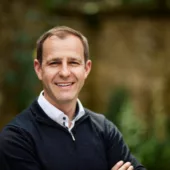Professor Andy Przybylski and Dr Amy Orben answer questions about their latest paper: Teenage sleep and technology engagements across the week.
Firstly, let’s remind ourselves, why is sleep so important for teenagers?
Andy: Good-quality and adequate sleep is a vital component of our cognitive and emotional well-being, especially in childhood and adolescence. Concerns about adolescents’ digital engagement and its possible influence on sleep are therefore at the forefront of societal and policy discourse.
Why carry out another study into teenagers, technology and sleep patterns, given there is already a lot of research out there?
Amy: We currently know very little about how digital technology use affects sleep in teenagers, even though we have many assumptions regarding it. Oftentimes studies relate self-reported average technology use throughout the day to sleep, however we wanted to test this in parallel to examining technology use before bedtime specifically.
Andy: To be honest, I was shocked by Ofcom’s finding that two-thirds of children aged 12-15 are allowed to take their mobile phone to bed. That data, and my experiences as a parent is part of what inspired the research. A lot of policy and medical recommendations now tell caregivers to limit adolescent technology use before bedtime, but when Amy and I checked the literature we found very few direct tests of the efficacy of this recommendation. We wanted to change that and put the potential impact of that ‘two-thirds’ statistic in a context that parents and policymakers could make some sense of.
What did your research findings show?
Amy: In our study “Teenage sleep and technology engagement across the week” (Peer J, 2020), we analysed data from up to 11,884 adolescents included in the UK Millennium Cohort Study to examine the association between digital engagement and adolescent sleep.
Examining this unique and high-quality dataset — which includes self-report measures of digital engagement, time-use diary data, as well as self-reported sleep duration and bedtimes data — provides an empirical lens to understand the effects of digital engagement throughout the day and also before bedtime.
While we found a slight negative correlation between total self-reported daily technology use and amount of sleep in adolescents (with a few minutes of sleep lost for every additional hour of digital technology use), surprisingly, and contrary to their expectations, we found little evidence for a substantial association between digital technology use 30 minutes before bedtime, measured using time-use diaries, and amount of sleep received.
You didn’t find much of a relationship between technology use and amount of sleep – what does that mean?
Amy: In short we found evidence of small negative associations between digital engagement and adolescent bedtimes, of relatively equal size on both weekdays and weekend days. Furthermore, there are small negative relations between digital engagement and total time spent sleeping, but the relation is a bit larger on weekdays than weekend days. This could be because on weekdays wake-up times are quite strict for adolescents, and so they cannot make up for the small amount of lost sleep due to digital technology use.
Andy: In abstract statistical terms, it is important to note that the associations we found in our analyses were very small, possibly inconsequential, in size. But we wanted to go beyond this and translate these findings into a metric that parents would understand when making the day-to-day decisions. When we did this for a specific subset of our analyses, we found that each additional hour of technology use throughout the day was associated with just over nine fewer minutes of less sleep on weekdays and about three and a half minutes less sleep on weekend days. But to truly understand the causal effects underlying the link between digital technologies and sleep much more research is needed.
What other studies do we need, to be able to build a general understanding of the interaction between technology/ies and sleep?
Andy: To truly understand technology effects we will need diverse research approaches that all examine the question from slightly different angles. Small scale studies that track technology exposure and exact sleep metrics, large scale studies that look at this across the population and those that target small subsections of the relationship in question. I think that collecting reliable data is going to be really tricky without technology companies involving themselves in the research process.
Also I think the key problem here is that lots of the tracking data from sleep related apps and digital devices is now collected on tech company servers and inaccessible to public facing scientists trying to understand technology effects. Technology companies can therefore sell the data for private research to improve their products, while public facing researchers are left in that dark. Nearly all of the major technology companies are now touting ‘digital well-being’ features that promise to boost sleep, energy, and health, but these claims escape serious scientific scrutiny. This has to change.
Finally, in your article you note that “it is increasingly evident that screen time as a concept is flawed”. Why? And what should we be considering instead?
Amy: We need to retire the concept of screen time in being a good predictor of technology use outcomes. 20 minutes of messaging our friends on a smartphone will affect us very differently from 20 minutes of scrolling through pro-anorexia content or 20 minutes of playing candy crush. Going forward we need to shift our societal debate and academic research to examine content, contexts and motivations, but to do so we will also need to find a way for researchers to access the necessary data which is often stored (and not shared) on social media company servers.
Read the full article: Orben, A., and Przybylski, A.K. (2020) Teenage sleep and technology engagement across the week. PeerJ.
Amy Orben and Andrew Przybylski were funded by a grant from Barnardo’s UK, Amy Orben received additional funding from Emmanuel College, University of Cambridge, and Andrew Przybylski received funding from the Huo Family Foundation.


